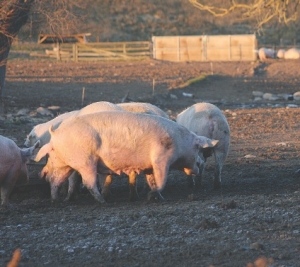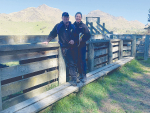NEW ZEALAND has a potential problem: we don’t know where all our pigs are, where they’re going, or where they’ve been.
The problem isn’t so much with the commercial industry – New Zealand Pork keeps a register of producers – as with the non-commercial, a MAF-funded survey by Massey University, published in this month’s New Zealand Veterinary Journal, reveals.
Its authors warn early detection and management of an exotic disease incursion in New Zealand’s pig herd “may be challenging” owing to the “substantial geographical overlap” between these groups of producers, and the lack of mandatory identification and tracking.
“If an exotic disease comes in it is very likely pigs will be involved either as the primary or a secondary source of infection,” lead author Eric Neumann told Rural News. “They’re susceptible to a number of exotic diseases, not just foot and mouth.”
Pigs’ susceptibility to such diseases can be a good thing, in that they act as a sentinel species, alerting authorities and industries to the presence of a pathogen before it spreads to another sector such as sheep, beef or dairy.
However, that sentinel role is unlikely if people keeping them are unaware of disease symptoms and rarely, if ever, use veterinary services. As such, “backyard” pigs also present a significant risk, explains Neumann.
“The other worrying part is the extent to which waste [human] food is used as a feed. That’s a [biosecurity] risk if it contains imported material.”
Regulations state meat waste must be heated to 100 deg C for an hour before it may be fed to livestock, but Neumann doesn’t believe that happens with scraps fed to backyard animals.
“People are unaware of that requirement.”
Even cooked meat is unlikely to comply with the regulations because typically it doesn’t get hot enough. If it did, it would “turn to shoe-leather” and be inedible, he points out.
Consequently imported meat carrying an exotic disease could lead to infection in a live animal, he believes.
While the paper points out backyard pigs typically do not come into contact with the commercial herd, even the small likelihood of such an event and the numbers involved means over time it is “almost certain to happen,” he says.
Just how many properties keep pigs in New Zealand remains a big unknown. The NZVJ paper notes recent estimates of holdings with non-commercial pigs range from 2,200 to over 6000.
“An accurate count of properties in New Zealand holding pigs remains an elusive yet important piece of information for disease outbreak planning activities,” states the paper’s discussion.
It also stresses the importance of engaging New Zealand’s substantial non-commercial industry in any premises identification or traceability scheme for the sector.
Even mandatory schemes may not gain sufficient compliance in non-commercial herds to add value beyond their cost so education on biosecurity and exotic disease presentation, public awareness campaigns, veterinary involvement and robust systems to ensure border security “will remain critical in keeping the New Zealand pig industry at its current level of disease freedom,” it concludes.
The NZVJ paper is particularly timely as a judgement on NZ Pork’s appeal of the High Court’s May 2012 ruling in favour of MAF over the risk raw pork imports pose with regards to PRRS, is expected this month.



















